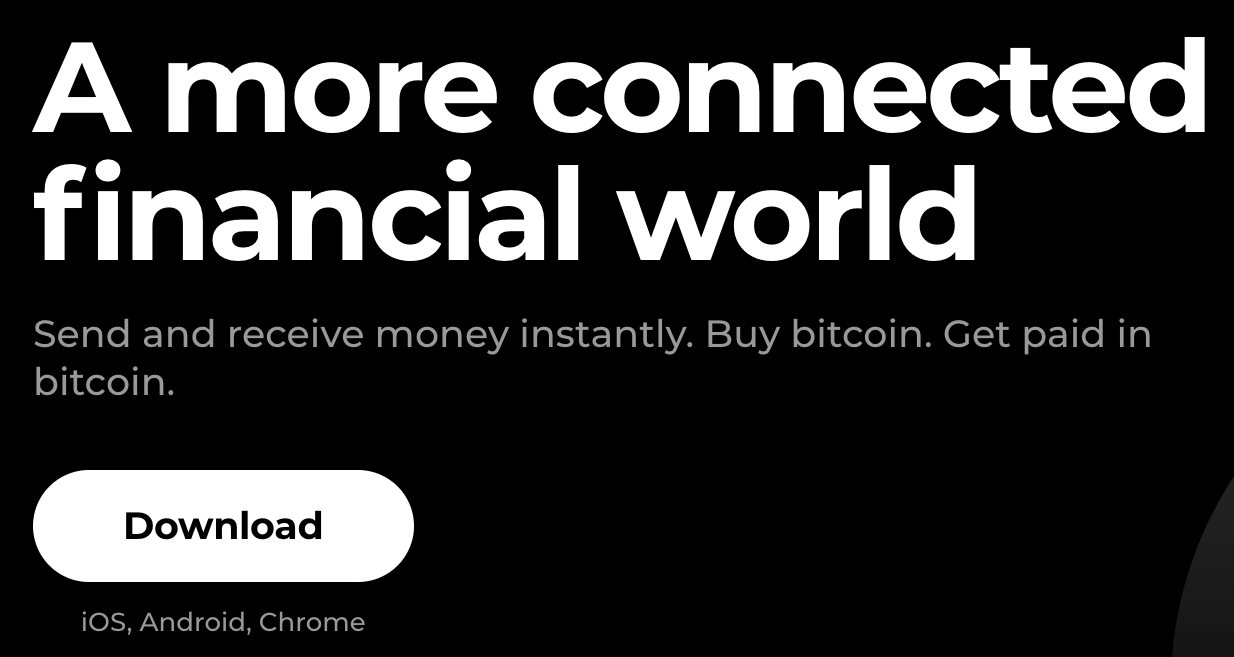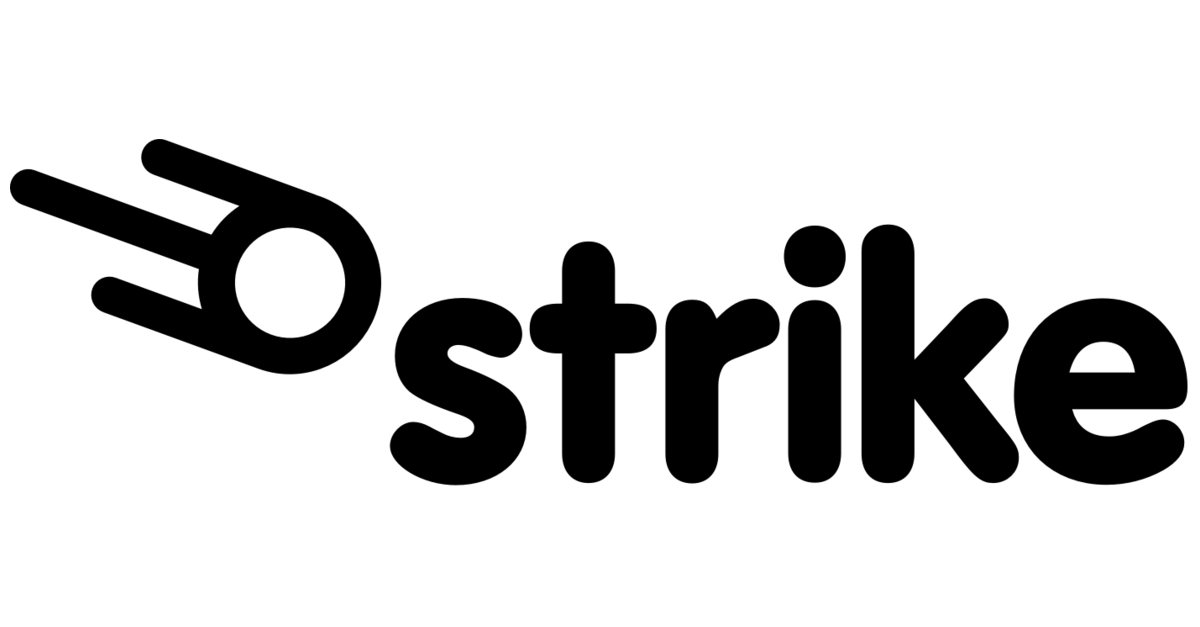
Strike is a unique Bitcoin-focused cryptocurrency company. Strike offers users the ability to buy and sell bitcoin with no fees and spend from your bitcoin balance using the Strike Visa debit card.
Perhaps the most impressive part of Strike is its pricing. You can buy, sell, and transfer bitcoin with near-instant speeds with no added fees.
Continue to learn more about Strike and how it may benefit you as a bitcoin user.
About Strike
Strike is a bitcoin platform with no fees to buy, sell, send, or receive bitcoin. It relies on the innovative Lightning Network, a high-speed bitcoin transaction platform that works parallel to the main bitcoin network. This is known as a layer 2 network in the crypto industry.
Lightning enables very fast transactions with low network fees. Strike doesn’t charge any fees to its users, but you may encounter network and pass-through fees depending on how you use Strike.
Overall, it’s an exciting offering for bitcoin enthusiasts. While there’s no support for Ethereum or other crypto networks, the focused experience at Strike offers one of the most user-friendly bitcoin experiences we’ve encountered.

Strike Features
Strike offers these core features for users:
Buy and sell bitcoin: The core feature at Strike is a bitcoin exchange. Users in the United States, El Salvador, and Argentina can use Strike currently. Purchases and sales reflect in your Strike account instantly.
Send and receive bitcoin: Send and receive bitcoin through the Lightning Network for high-speed, low-cost transfers to or from anyone with a compatible wallet.
Bitcoin debit card: The Strike debit card works anywhere Visa is accepted. When using this card, purchases come from your Strike bitcoin account balance. See this list of Bitcoin credit and debit cards for comparison.
Get “paid” in bitcoin: Using your employer's direct deposit, you can turn your paycheck into bitcoin with Strike at the current bitcoin rate with no added fees.
Business payment tools: Businesses can use Strike to enable online sales and in-person merchant transactions. Developers can tap into the Strike API for online payments. Additional payment solutions are available for businesses looking for an extensive Strike and bitcoin relationship.
Pricing And Fees
One of the most standout features of Strike is the pricing. You can buy, sell, send, and receive bitcoin with no fees or added charges from Strike. You may pay network fees for transacting, which go to the bitcoin and Lightning Network miners responsible for processing transactions. That’s all regular users ever pay when using Strike.
According to an interview with the Strike CEO, the company makes money from Visa debit card transaction fees and services provided to merchants. This is a huge benefit compared to high-cost exchanges that charge transaction fees for every trade.
Strike Pros and Cons
Pros
Cons
Strike Alternatives
Strike is far from the only cryptocurrency platform. Here are some Strike alternatives to know about and consider:
Sphinx: Sphinx is a chat network powered by the Lightning Network. Using that integration, secure messages require a tiny sliver of bitcoin in network fees. Users can also tap into the app to send and receive BTC.
Bitrefill: Bitrefill is a Lightning Network app that allows you to buy gift cards, pay for a prepaid phone plan, or pay supported bills using your bitcoin balance. Gift card options include Amazon, Uber, Starbucks, and many more. Bill pay options include American Express, Chase, Capital One, Venmo, and others. The site claims more than 5,000 options to spend your bitcoin.
Phoenix Wallet: Phoenix wallet is a native Lightning Network wallet enabling quick bitcoin transactions. It’s free to download and use.
Robinhood: Robinhood enables fee-free crypto trades, including bitcoin. However, it’s important to note you can’t withdraw bitcoin from a Robinhood account. It’s stuck in there until you sell.
How To Open An Account
Opening a Strike crypto account is quick and easy. You’ll need an internet connection and your personal information handy to get started.
Navigate to Strike: Start by downloading and opening the Strike app on your mobile device. Then click on the prompt to “Get Started.”
Enter your details: Strike requires your name, email, and phone number when signing up. You also need to pick a user name. You won’t be able to sign up if you live in New York or Hawaii.
Confirm KYC information: Know Your Customer (KYC) requirements for your birthdate, address, Social Security number, and a copy of a government ID to unlock all account features.
Safety And Security
As of this writing, Strike has a strong history of keeping customer accounts and assets safe. As with all financial products, it’s critical to use a unique, secure password that’s not used on any other site. A password manager like Bitwarden is a great choice, with a free version that meets the needs of many users, for fans of open-source software.
The nature of crypto makes transactions one-way. Because Lightning Transactions are near-instant and not reversible, it’s important to double-check every transaction before you hit the submit button.
Customer Service
The Strike app holds strong ratings in the Google Play and Apple App Store. It isn’t widely reviewed on customer review sites, but those strong ratings in the app stores are a good sign that users have an overall positive experience.
Bottom Line
For apps that allow you to use bitcoin as money, rather than just HODL, Strike is a strong competitor. This no-fee platform that enables you to buy, sell, send, receive, and spend bitcoin comes with a lot to like. While it’s ultra-focused on bitcoin and doesn’t support any other cryptos, it does a very good job at what it’s trying to do best.

Eric Rosenberg is a financial writer, speaker, and consultant based in Ventura, California. He holds an undergraduate finance degree from the University of Colorado and an MBA in finance from the University of Denver. After working as a bank manager and then nearly a decade in corporate finance and accounting, Eric left the corporate world for full-time online self-employment. His work has been featured in online publications including Business Insider, Nerdwallet, Investopedia, The Balance, HuffPo, Investor Junkie, and other fine financial blogs and publications. When away from the computer, he enjoys spending time with his wife and three children, traveling the world, and tinkering with technology. Connect with him and learn more at EricRosenberg.com.

